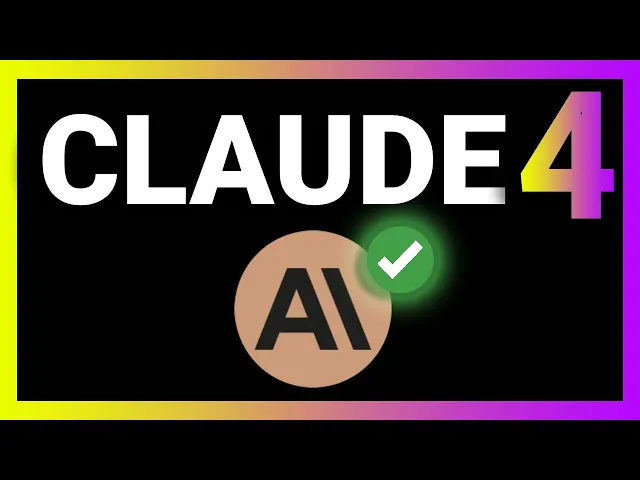NEW: Anthropic Claude 4 in 5 mins!

Claude 4 changes everything for business
In a tech world constantly buzzing with AI advancements, Anthropic's release of Claude 4 marks a genuine shift in what businesses can expect from conversational AI. The latest iteration doesn't just incrementally improve on its predecessors – it fundamentally redefines capabilities, making what seemed like science fiction mere months ago into practical business tools today.
Claude 4 represents Anthropic's most significant leap forward, presenting a suite of enhanced abilities that position it as a serious contender in the increasingly competitive AI assistant landscape. While OpenAI's GPT-4 has dominated headlines, Claude 4 arrives with compelling evidence that the AI race has multiple strong competitors – and businesses stand to benefit tremendously from this innovation acceleration.
Key developments that matter
-
Dramatic reasoning improvements enable Claude 4 to solve complex problems with unprecedented accuracy, particularly excelling in STEM fields, coding tasks, and logical reasoning scenarios that previously challenged even the most advanced AI systems.
-
Enhanced vision capabilities allow Claude 4 to analyze images with remarkable detail – from processing charts and graphs to understanding memes, diagrams, and even handwritten notes with human-like comprehension.
-
Fine-tuned control mechanisms provide businesses with more precise ways to guide Claude's outputs, maintaining its hallmark safety features while offering deeper customization for specific business use cases.
-
Context window expansion to 200K tokens means Claude 4 can process entire codebases, lengthy documents, or extended conversations without losing track of important details – a crucial advancement for enterprise applications.
-
Speed improvements make interactions feel noticeably more responsive, reducing friction in workflows where AI assistance is becoming increasingly integrated.
The breakthrough that changes everything
The most transformative aspect of Claude 4 isn't any single feature but rather its crossing of a critical threshold in reasoning capabilities. Claude's ability to break down multi-step problems, maintain logical consistency through complex scenarios, and generate reliable, accurate information fundamentally changes what businesses can delegate to AI assistants.
This matters tremendously in the broader industry context because we're witnessing the emergence of AI systems that don't just retrieve or repackage information, but actively reason through challenges in ways that complement human thinking. For businesses, this means AI assistants are evolving from glorified search tools
Recent Videos
How To Earn MONEY With Images (No Bullsh*t)
Smart earnings from your image collection In today's digital economy, passive income streams have become increasingly accessible to creators with various skill sets. A recent YouTube video cuts through the hype to explore legitimate ways photographers, designers, and even casual smartphone users can monetize their image collections. The strategies outlined don't rely on unrealistic promises or complicated schemes—instead, they focus on established marketplaces with proven revenue potential for image creators. Key Points Stock photography platforms like Shutterstock, Adobe Stock, and Getty Images remain viable income sources when you understand their specific requirements and optimize your submissions accordingly. Specialized marketplaces focusing...
Oct 3, 2025New SHAPE SHIFTING AI Robot Is Freaking People Out
Liquid robots will change everything In the quiet labs of Carnegie Mellon University, scientists have created something that feels plucked from science fiction—a magnetic slime robot that can transform between liquid and solid states, slipping through tight spaces before reassembling on the other side. This technology, showcased in a recent YouTube video, represents a significant leap beyond traditional robotics into a realm where machines mimic not just animal movements, but their fundamental physical properties. While the internet might be buzzing with dystopian concerns about "shape-shifting terminators," the reality offers far more promising applications that could revolutionize medicine, rescue operations, and...
Oct 3, 2025How To Do Homeless AI Tiktok Trend (Tiktok Homeless AI Tutorial)
AI homeless trend raises ethical concerns In an era where social media trends evolve faster than we can comprehend them, TikTok's "homeless AI" trend has sparked both creative engagement and serious ethical questions. The trend, which involves using AI to transform ordinary photos into images depicting homelessness, has rapidly gained traction across the platform, with creators eagerly jumping on board to showcase their digital transformations. While the technical process is relatively straightforward, the implications of digitally "becoming homeless" for entertainment deserve careful consideration. The video tutorial provides a step-by-step guide on creating these AI-generated images, explaining how users can transform...
